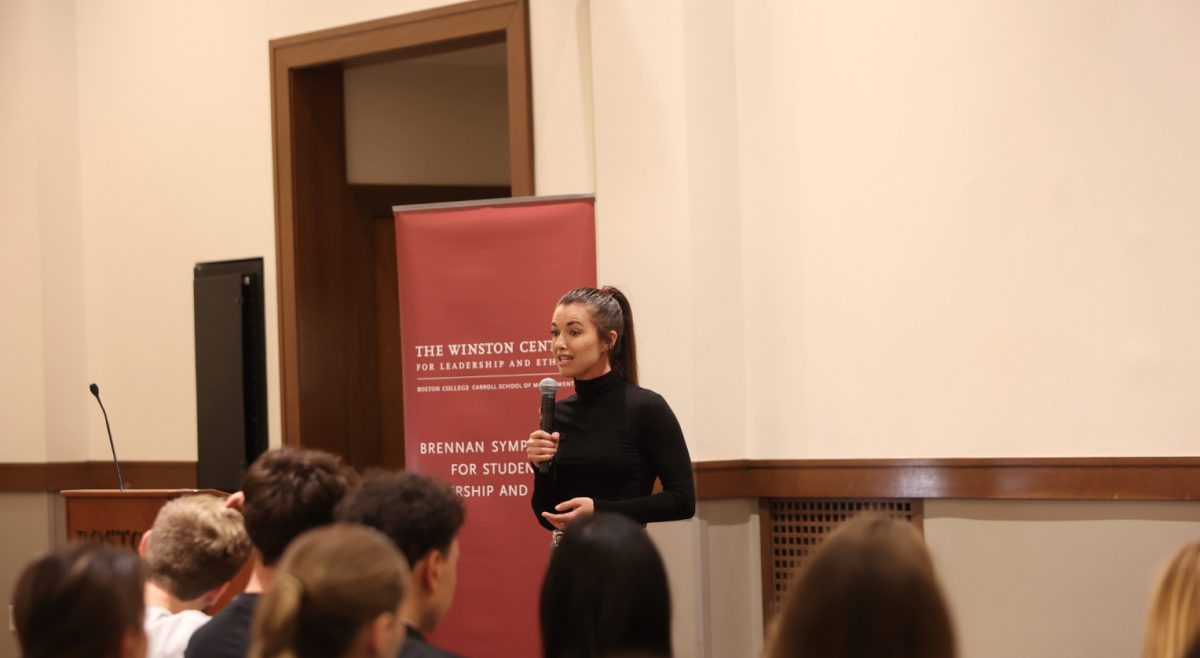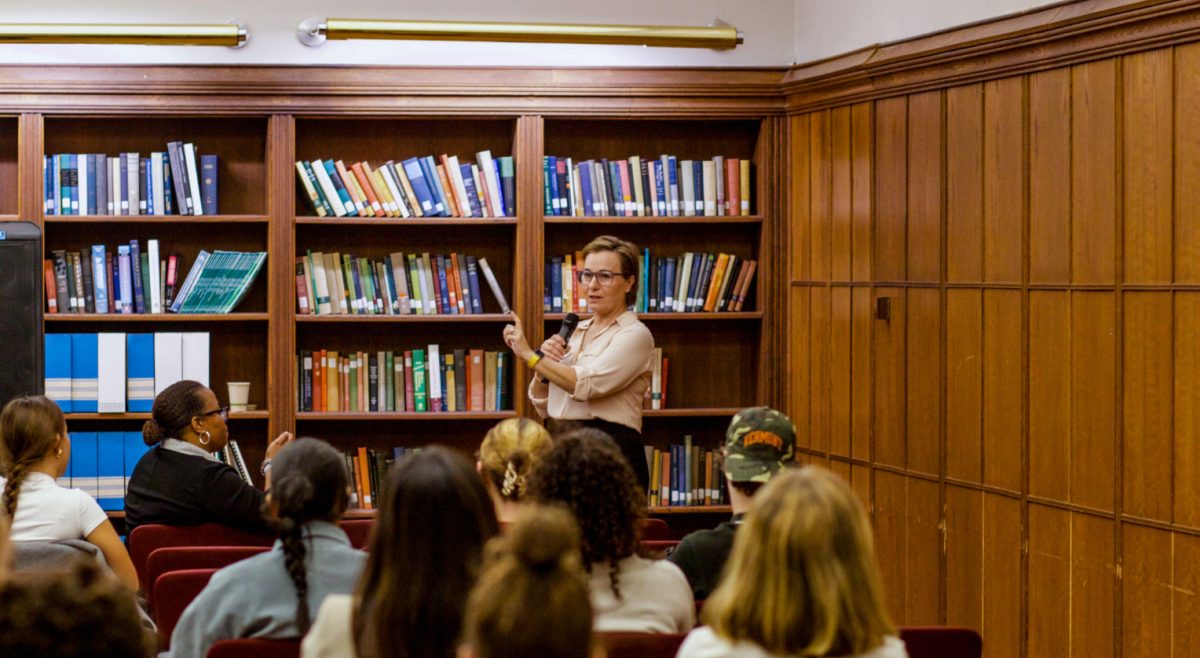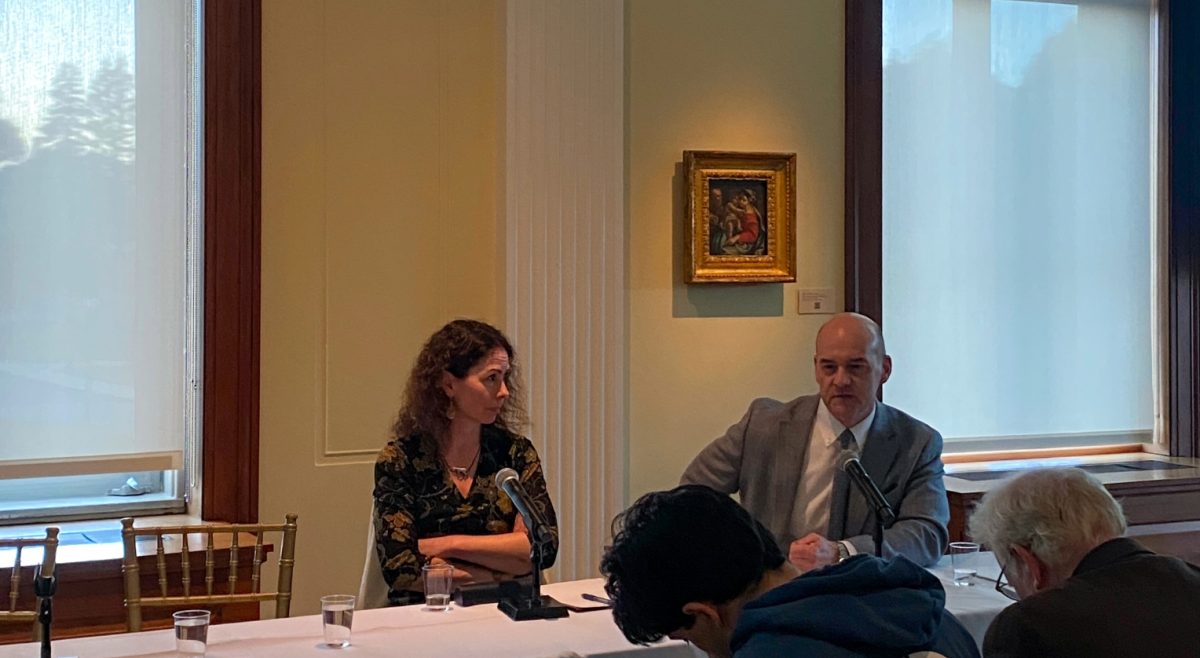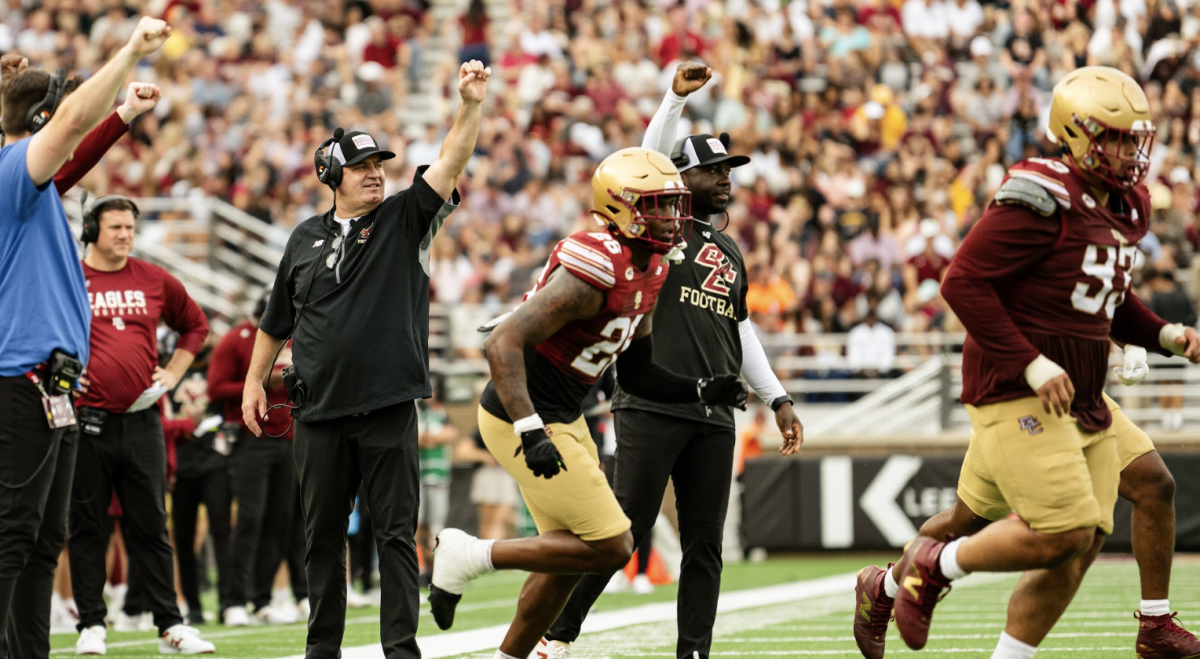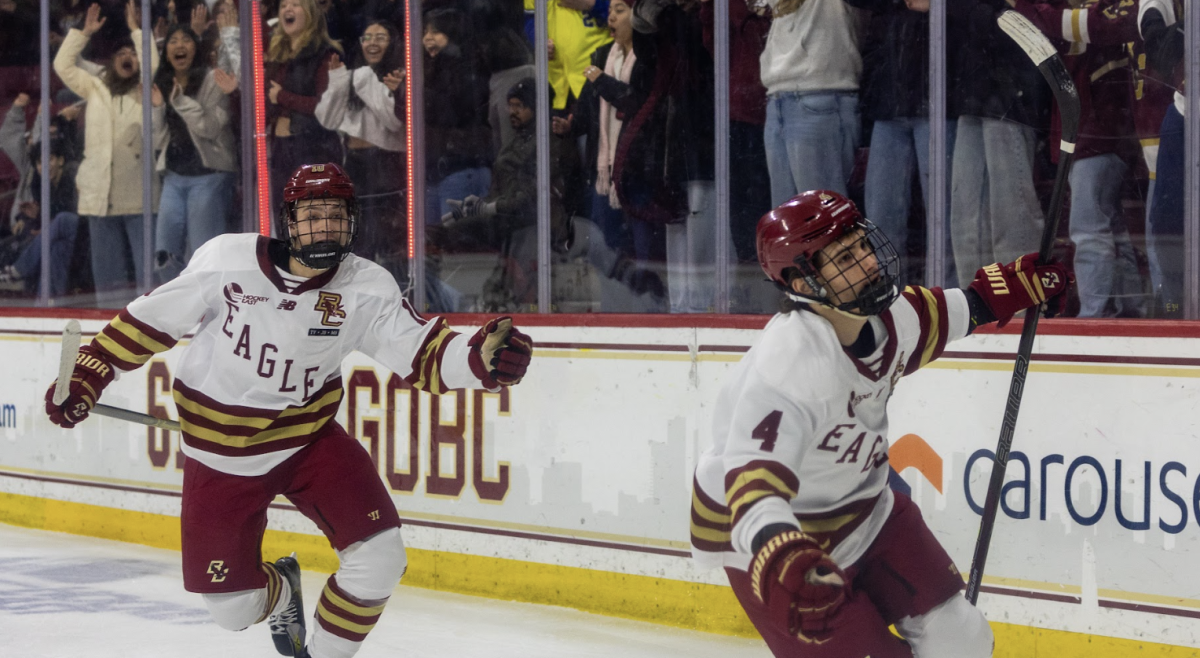Boston College filed court documents on Monday reaffirming the University’s earlier statements that hazing occurred within the men’s and women’s swim and dive program.
A Middlesex County Superior Court judge heard arguments Tuesday from Daryl Lapp, BC’s attorney, and a lawyer representing 37 members of BC swim and dive. The student-athletes filed a lawsuit against the University last week that called for the program’s suspension to be lifted.
Regina Federico, the program members’ attorney, asked Judge Diane Freniere to issue a preliminary injunction lifting what the student-athletes’ lawyers labeled an unjustified suspension. The swim and dive program remains suspended after the University accused its members of hazing in September, and the team’s request to be reinstated currently awaits Freniere’s decision.
“We’re here to remedy this grave injustice and irreparable harm that has befallen [the swimmers],” Federico said.
BC Dean of Students Corey Kelly and Athletics Director Blake James both filed affidavits on Monday. Kelly’s affidavit said BC’s ongoing investigation determined a “Frosh” party occurred on Sept. 3 where freshmen were instructed to engage in drinking games and binge drinking. The affidavit alleged that freshmen were given vomit bags to wear around their necks and a number of students passed out. The event is an annual tradition, the affidavit reads.
James’ affidavit stated that BC’s initial investigation confirmed hazing that involved power dynamics and excessive consumption of alcohol occurred. It also said that James discovered members of the team were found responsible for hazing in Spring 2022. The evidence gathered in the initial investigation warranted BC Athletics’ decision to suspend the program, James wrote.
Lapp said some swim and dive members said hazing is a tradition on the team during an initial investigation.
“The way you stop a team tradition is to take action against the team,” Lapp said.
In the lawsuit, the swimmers and divers are referred to as “John and Jane Does 1-37.” The Tuesday hearing began with their lawyer, Federico, asserting that the student-athletes involved in the lawsuit should maintain anonymity for the sake of their reputations. Federico said having their names attached to the lawsuit will affect their ability to attend graduate school and get jobs in the future.
“They will be required to talk about this in any graduate school applications or employment applications … and will fill them with shame and distress,” she said.
Lapp responded to these claims by arguing that no one on the swim team is being “vilified” for filing the lawsuit.
“The emotional distress of being a litigant is not enough,” Lapp said. “There are no claims here for the plaintiffs proceeding with pseudonymity.”
The judge is still deciding whether or not to grant anonymity to the plaintiffs.
The student-athletes are in part suing BC for breach of contract, saying BC denied them “basic fairness.” But, Lapp noted that the team is bound not only by the BC Student Code of Conduct, but also by a student-athlete compliance document that each member of the team is required to sign before the start of every season. These rules and the consequences for breaking them are clear, according to Lapp.
“Each of these students signed a compliance packet … acknowledging [the forbiddance of hazing],” Lapp said.
Federico said this is true, but the hazing policy within the compliance packet is not easily accessible.
“[The compliance packet] says that the [hazing] policy is accessible online, but it does not provide a link to a copy of it … and if you go to the Boston College compliance page, there is no readily available link at this time,” she said.
Many of the student-athletes planned to participate in the upcoming U.S. Olympic Team Trials, which is now not possible due to the suspension, Federico said.
“This opportunity only comes along every four years … for most of them this is a once in a lifetime opportunity,” Federico said.
In its response to the lawsuit, BC said this claim is “self-serving,” arguing that BC swim and dive does not typically rank high among its competitors, and the members would likely not qualify for the Olympics.
“There is no evidence that any of the plaintiffs likely would qualify for the Olympic Trials or compete in the Olympics,” BC said in the filing.
James’ affidavit said that despite the suspension from formal team activities, program members are still free to utilize BC’s athletic facilities to continue their training, as well as use other resources offered by BC Athletics like athletic trainers.
In addition to the loss of training time, Federico said the suspension has caused mental health issues for many members of the team.
“A lot of them are seeking therapy,” Federico said.
Federico said BC’s decision to suspend the whole team is unfair because not all student-athletes attended the events where the alleged hazing occurred.
While he acknowledged that not everyone on the team may have participated in the hazing, Lapp said hazing is inherently a team issue, resulting in the suspension of the entire team.
“Someone or a group of people are [abusing] the power of the team to perpetuate hazing against people who want to be a part of that,” Lapp said. “Not just membership on the roster, but fully a part of the team, considered one of us, part of the tribe.”
While no one at the hearing brought up the allegation that freshmen were forced to consume their own vomit, Lapp emphasized the statements from Kelly’s and James’ affidavits and said the freshmen were instructed to drink heavily.
“They gave [the freshmen] vomit bags … meaning they knew they were going to drink so much that they needed vomit bags tied around their necks,” Lapp said.
These actions pushed BC to take “swift action,” according to Lapp.
The University is currently investigating the allegations, which Lapp called “an enormous process.” According to Lapp, BC has hired numerous external lawyers and conducted over 80 interviews. He said the University’s report is currently being prepared and then BC will go conduct individual student conduct hearings for the accused student-athletes.
Freniere said she expects to make a ruling soon, but even if she rules to issue an injunction lifting the team’s suspension, BC would have the legal right to suspend the team again once it completes its official internal investigation.
“The conundrum is [BC] could shut [the decision] down immediately anyway,” Freniere said.
Graham Dietz and Luke Evans contributed to reporting.




